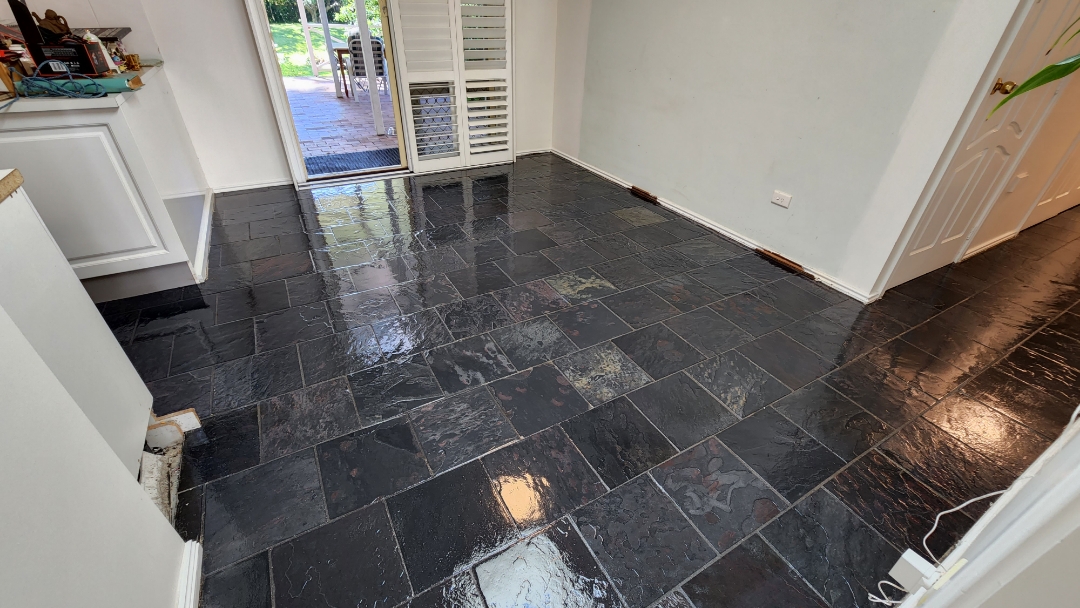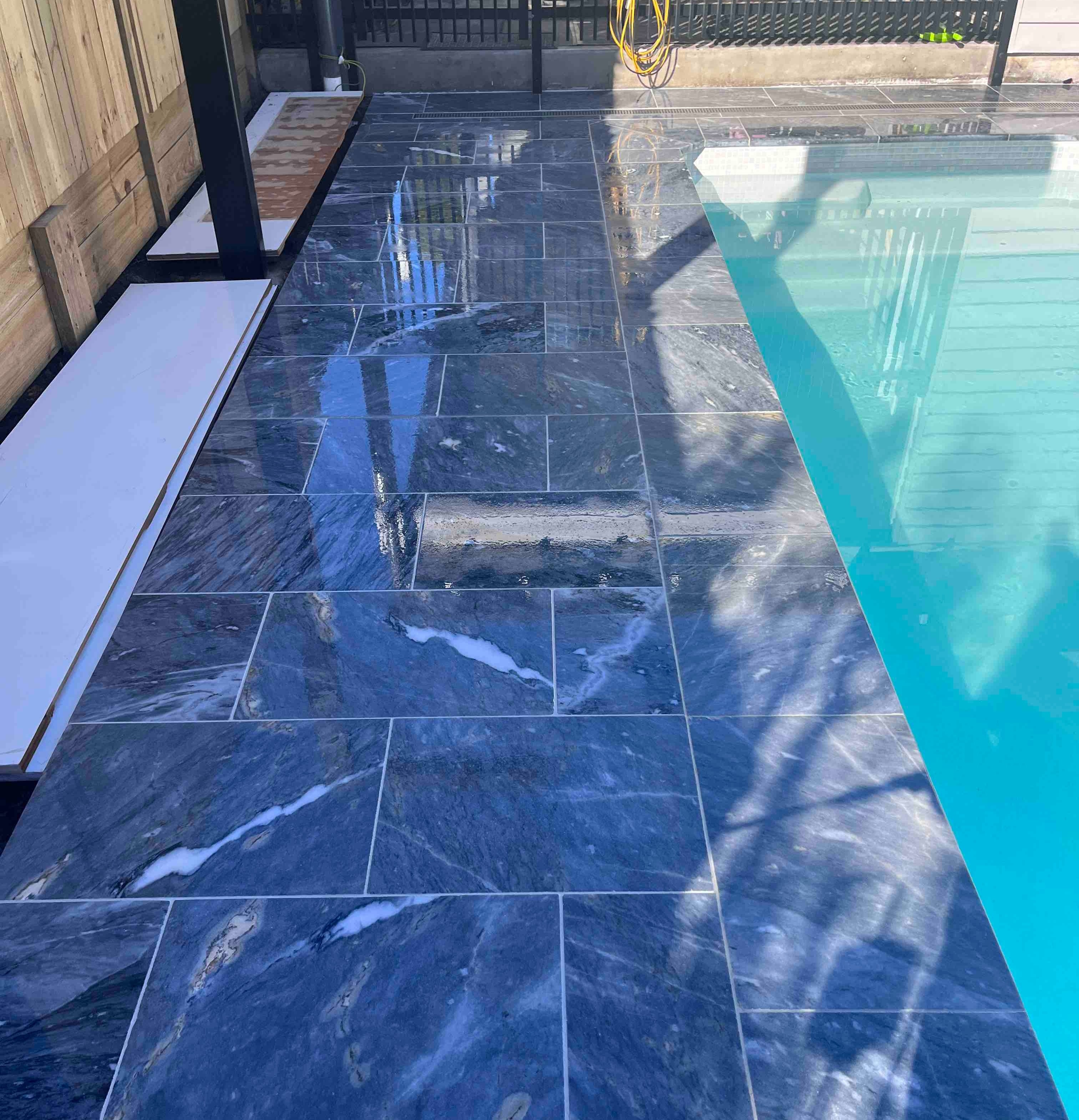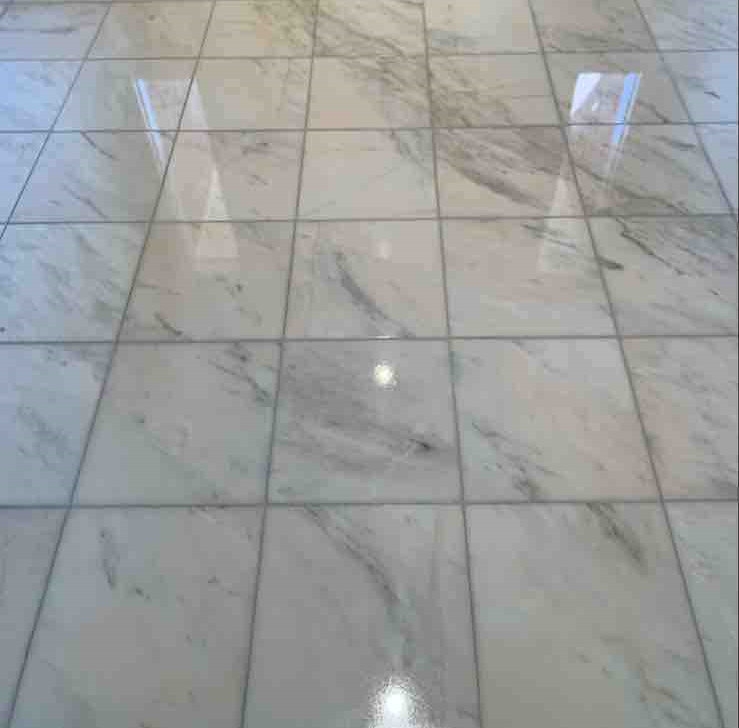- travertine Sealer Windradyne Heights and Abercrombie Estate
- Penetrating travertine Sealer Windradyne Heights and Abercrombie Estate
- Outdoor travertine Sealer Windradyne Heights and Abercrombie Estate
- Non Slip Sealer for travertine Windradyne Heights and Abercrombie Estate
- Long Lasting travertine Sealer Windradyne Heights and Abercrombie Estate
- Impregnating travertine Sealer Windradyne Heights and Abercrombie Estate
- Breathable travertine Sealer Windradyne Heights and Abercrombie Estate
- Best travertine Sealer Windradyne Heights and Abercrombie Estate
- Sealing travertine Pavers Windradyne Heights and Abercrombie Estate
- Sealing travertine around Pool Windradyne Heights and Abercrombie Estate
- Sealing travertine Kitchens Windradyne Heights and Abercrombie Estate
- Sealing travertine Bathrooms Windradyne Heights and Abercrombie Estate
- Sealing travertine Showers Windradyne Heights and Abercrombie Estate
- Sealing travertine Benchtops Windradyne Heights and Abercrombie Estate
- Protecting against Acid Attack
- Protecting against Salt Attack
- Protecting against Efflorescence
- Why travertine?
- What is travertine?
- What is Efflorescence?
- Maintenance & Care Windradyne Heights and Abercrombie Estate
- travertine Stains Removal Windradyne Heights and Abercrombie Estate
- Efflorescence Removal Windradyne Heights and Abercrombie Estate
- travertine Available Finishes Windradyne Heights and Abercrombie Estate
Removing Stains from travertine Windradyne Heights and Abercrombie Estate - Bathurst
As always, prevention is better than finding a cure. If you have sealed your travertine, you should be able to easily wipe away any potential stain, provided it hasn't been left too long.
It is crucial in Windradyne Heights and Abercrombie Estate to NEVER use anything acidic, such as vinegar or citrus, as it can etch or corrode your travertine.
If you encounter a potential stain, you can try the following solutions for travertine:
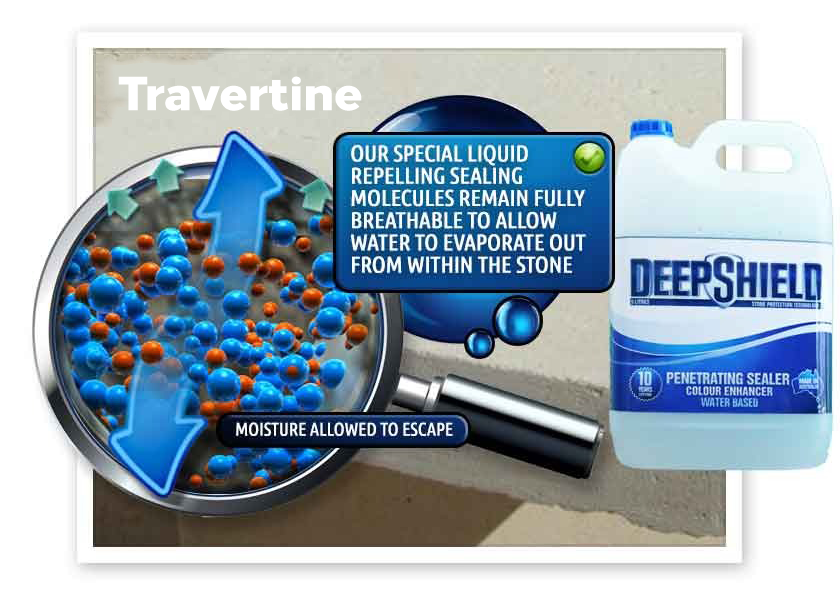
Utilize a commercial poultice product for travertine in Windradyne Heights and Abercrombie Estate.
A poultice typically consists of a blend of ground chalk (whiting) and hydrogen peroxide, which can be obtained from hardware stores in Windradyne Heights and Abercrombie Estate. Some variations may utilize a different chemical instead of hydrogen peroxide. Follow the instructions provided with the product as a general guide when applying it to travertine in Windradyne Heights and Abercrombie Estate.
- Wet the poultice with distilled water.
- Apply the poultice to the stain or stained area.
- Leave it in situ for 48 hours to enable drying and absorption into the travertine.
- Rinse off the poultice. The stain should have disappeared.
- Reseal the area with a penetrating sealer
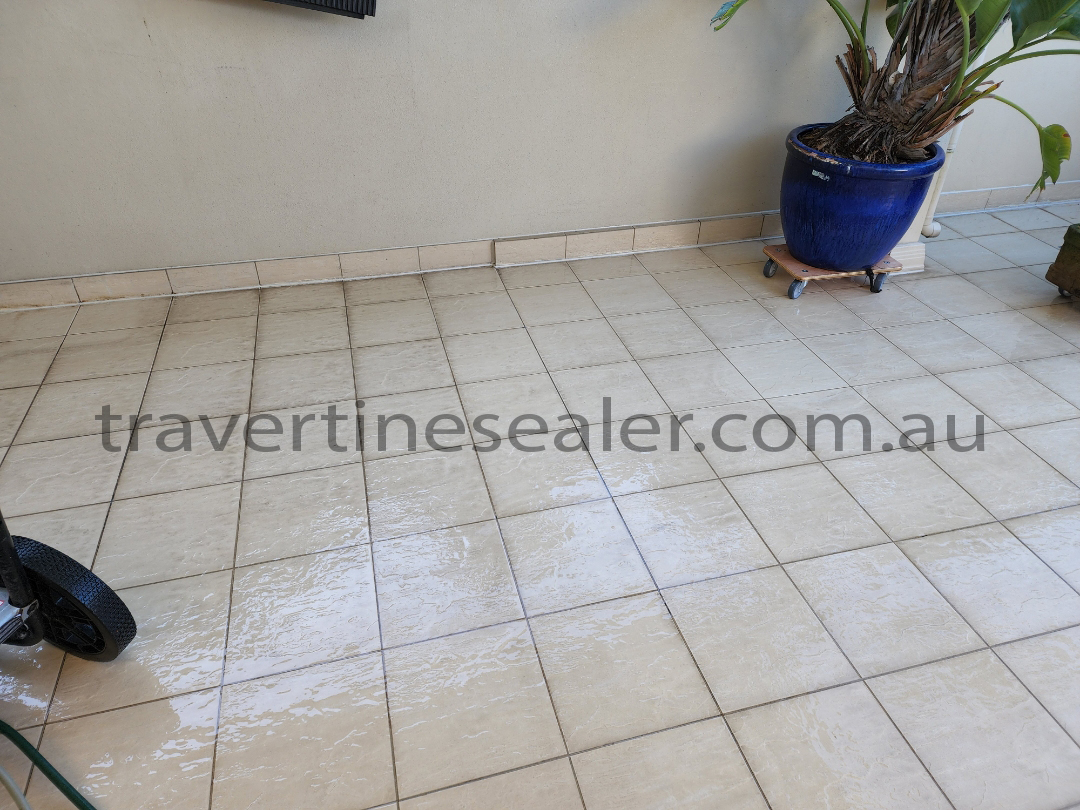 Cleaning travertine Countertops in Windradyne Heights and Abercrombie Estate
Cleaning travertine Countertops in Windradyne Heights and Abercrombie Estate
Since travertine is calcium-based, acidic substances like vinegar and lemon juice should never be used.
When using any cleaning product on travertine in Windradyne Heights and Abercrombie Estate, ensure it is pH neutral.
Due to the calcium content in travertine and its porous nature, using acidic or harsh cleaners may scratch and damage the surface.

How to Clean Travertine Floors:
- Mix warm water and a pH neutral floor cleaner in a bucket
- Add 1 cup of cornflour to the mixture.
- Stir vigorously.
- Use this mixture to mop the floor.
The cornflour aids in removing marks and stains from travertine in Windradyne Heights and Abercrombie Estate as it helps draw out substances from the porous stone.
If the above techniques fail to achieve the desired results, consider contacting a professional cleaning company in Windradyne Heights and Abercrombie Estate equipped with the appropriate equipment and solutions for travertine.
Tile Cleaners Australia specializes in tile and grout cleaning, sealing, stripping, resealing, regrouting, grout color sealing, and minor tile repairs, making them Australia's leading tile care provider.
Please be aware that any information provided is given in good faith and is believed to be appropriate and reliable. However, as conditions may vary widely and are beyond our control, this information is provided without liability or responsibility on our part. It is the recipient's responsibility to determine if the information provided is suitable for their specific situation. If there is any doubt, any process should be tested in an inconspicuous area before general application.





